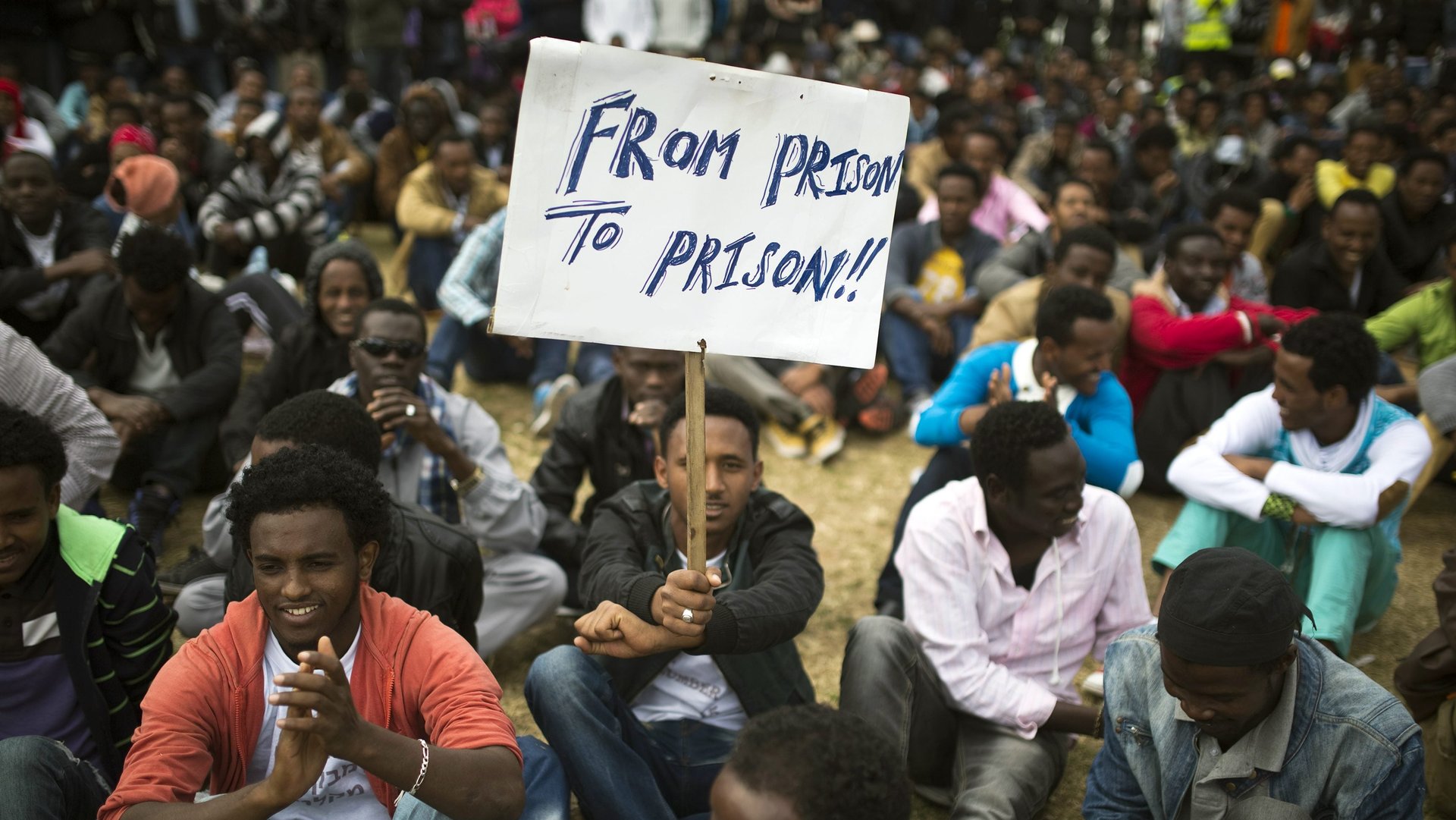Israel wants African migrants out so badly, it’s offering $3,500 to each—or prison
Leave, or go to prison: That’s the ultimatum Israel has proposed giving African migrants who illegally entered the country and who do not have asylum applications pending.


Leave, or go to prison: That’s the ultimatum Israel has proposed giving African migrants who illegally entered the country and who do not have asylum applications pending.
The Israeli government is considering giving each migrant a reported sum equivalent to $3,500 to leave, with the option of going home or to a third country. If they don’t leave in the next three months, they face potential imprisonment. The plan, however, exempts children, elderly people, and victims of slavery and human trafficking.
While officials have said the return process would be “voluntary,” critics and human rights organizations have pronounced their opposition to the idea, saying it lacked transparency. In the past, African refugees in Israel have faced challenges receiving asylum, with rights groups saying the government has been slow to process applications—and when they do, offer refuge to only a small number of people. The current plan threatens to oust almost 40,000 Africans, many of them from Sudan and Eritrea.
“Anyone who has a heart must oppose the expulsion of the refugees,” read a letter signed by groups including the Centre for Refugees and Migrants, Amnesty International Israel, and the Association for Civil Rights in Israel.
The notice is the latest move by Israel to control the influx of African migrants who have arrived in the country for more than a decade. And while the migrants say they are fleeing war, persecution, and conscription, officials say they are “infiltrators” in search of economic opportunities. As such, migrants have faced violence and harassment in the streets of Israel without any work, health or social benefits. Some of them have also been forced into detention centers like the Holot center located in the Negev desert.
As it pressured migrants to leave over the years, Israel also was accused of making deals with African countries including Rwanda and Uganda, both countries where Israeli prime minister Benjamin Netanyahu began his campaign to win lost alliances. In just under two years, Netanyahu has made three trips to the continent, hoping to ink bilateral agreements, geopolitical treaties, and deepen Israel’s commercial interests in Africa.
Last year, Rwandan foreign minister Louise Mushikiwabo said it “would be willing to accommodate” other Africans sent from Israel. Yet investigations have shown that once refugees reach these countries, they receive no visas, work permits, or any of the packages they were initially promised.